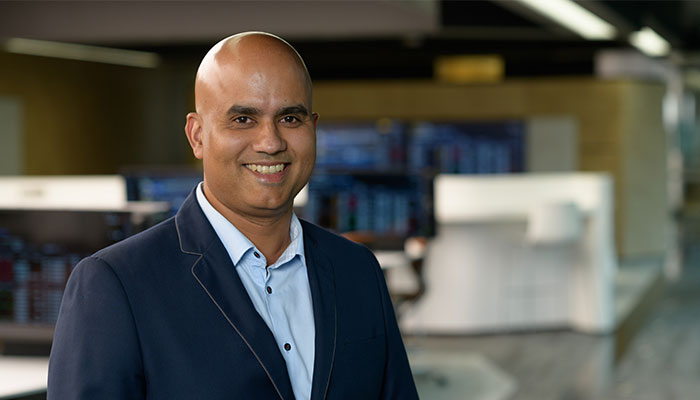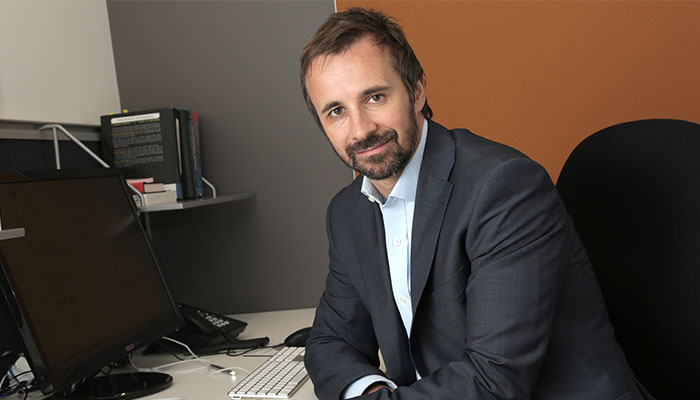Tuesday’s budget offers a chance for the Coalition to convince voters buffeted by COVID-19, rising prices and global uncertainty that it deserves another term in office. Macquarie Business School economists analyse the likely winners and losers of the 2022 pre-election budget.
Dr Lurion De Mello, Senior Lecturer, Department of Applied Finance, Macquarie Business School
Treasurer Josh Frydenberg is set to slash the fuel excise in next Tuesday’s federal budget – though recent storm damage may give him pause for thought.

Hip pocket relief: motorists will save money if the Treasurer goes ahead with cuts to fuel excise in next week’s budget.
The excise is fixed at 44.2 cents a litre on all fuel types and a 10 cents a litre reduction could significantly reduce the cost to motorists and to industry.
The benefits are clear – motorists will save money when filling up while it will alleviate the hit to transport costs and knock-on impacts across the economy.
The upside for the Government will be instant – positive headlines as a beleaguered Scott Morrison ponders the date of the federal election.
But there are pitfalls.
The fuel excise tax contributes around $13 billion dollars in revenue each year – a significant slice of which funds the fixing and building of roads.
The budget should be about addressing our long-term energy security and not just splurging taxpayer dollars chasing a few votes.
Recent storms have done enormous damage to our roads. Is it wise to slash the funds available for road repairs when our transport network is in urgent need of repair?
Additionally, the wild fuel price cycle makes it hard to ensure retailers pass on the full savings and many will be tempted to pocket some of the cut.
The budget should be about addressing our long-term energy security and not just splurging taxpayer dollars chasing a few votes.
I would like to see the Treasurer giving real power to the Australian Competition and Consumer Commission to control wild fluctuations in fuel prices at the pumps.

Good and bad news: Dr Lurion de Mello (pictured) says motorists can look forward to cheaper petrol but it could be at the expense of flood-damaged roads.
—–
Professor Henry Cutler, Director, Macquarie University Centre for Health Economy
The Health and Aged Care portfolio has taken centre stage in recent years with massive funding allocated to the COVID-19 response.

Cash for jabs: with funds for vaccinations already announced, mental health services are the next likely target for government spending.
The government recently announced another $2.1 billion in response to the COVID-19 pandemic, mostly for vaccinations and supplying PPE to aged care providers.
This year’s budget will see more investment in mental healthcare services given the increase in mental ill health from the pandemic.
There will likely be investment in prevention after the Government released its 10-year national preventative health strategy last year. There will also be additions to the Pharmaceutical Benefits Scheme.
If its pre-election budget in 2019 is any indication, the Government will further invest in health infrastructure for local communities – hospital improvements and new treatment clinics.
The Government should immediately increase the role of private hospitals in treating public patients.
Waiting times for public hospital elective surgery have blown out after the Government suspended non urgent elective surgery as part of its COVID-19 response.
Around 32 per cent of people wanting a knee replacement waited more than a year in 2020-21.
The Government should immediately increase the role of private hospitals in treating public patients.
Long term, the public system needs to increase its elective surgery capacity through greater investment.
Public investment should sit within a reform agenda to increase the public hospital system’s capacity to respond to growing demand.

Health in focus: Professor Henry Cutler (pictured) wants to see increases in the role of private hospitals in treating public patients to help easing elective surgery waiting times.
—–
Dr Prashan Karunaratne, Course Director, Bachelor of Commerce
Given this is an election year, I expect the Treasurer to loosen the purse strings relative to the last budget.
Expect one-off payments to help households combat the rising cost of living – with most taxpayers benefiting – though some payments may be means tested.

Jobs of the future: Dr Prashan Karunaratne wants to see an investment in training the workforce for future-focussed industries.
But the use of these Centrelink payments when unemployment is very low and inflation is rising can worsen inflation.
Both the Government and the Reserve Bank are pursuing policies with immediate, headline-grabbing, feel-good effects – but which will likely fuel further rises in the cost of living.
Serious structural issues relating to economic fundamentals – such as training – are not being addressed.
The pursuit of this agenda is exacerbated by Australia’s short election cycle which does not encourage governments to consider the long-term impacts of their decisions.
Serious structural issues relating to economic fundamentals – our over-reliance on traditional industries and the lack of training for our workforce for future-focused industries – are not being addressed.
Markets eventually react to this gap between perception and reality – which is what happened with the 2008 Global Financial Crisis.
The Treasurer should establish and finance a sovereign wealth fund managed by a trust comprised of people from all walks of life – including economists.
This board of trustees would release a parallel budget of long term projects on both a microeconomic (education and training-based policies to enhance productivity and agility) and macroeconomic level (infrastructures spending – physical and technological).
This would ensure a long term vision for federal spending, removing the influence of political campaigning caused by our short election cycle and facilitating broader planning over 30 years or more.

Short term gains: Dr Prashan Karunaratne (pictured) says the pre-election budget will likely include popular, one-off cash bonuses.








